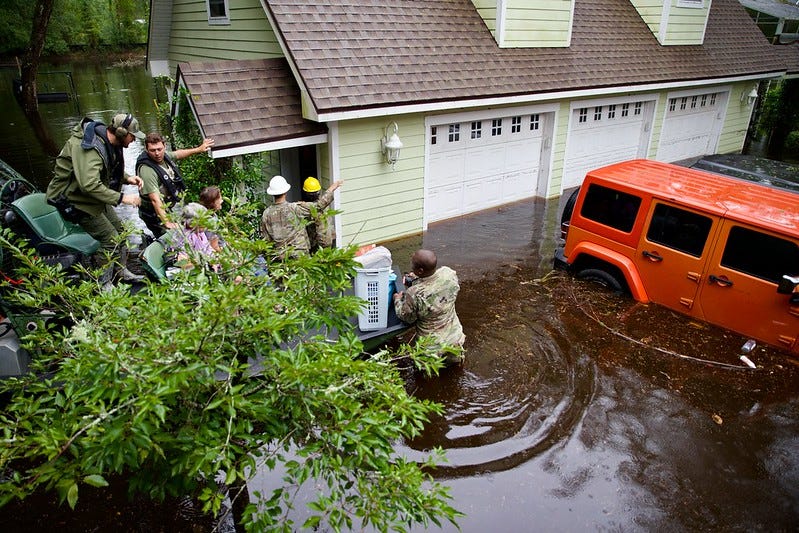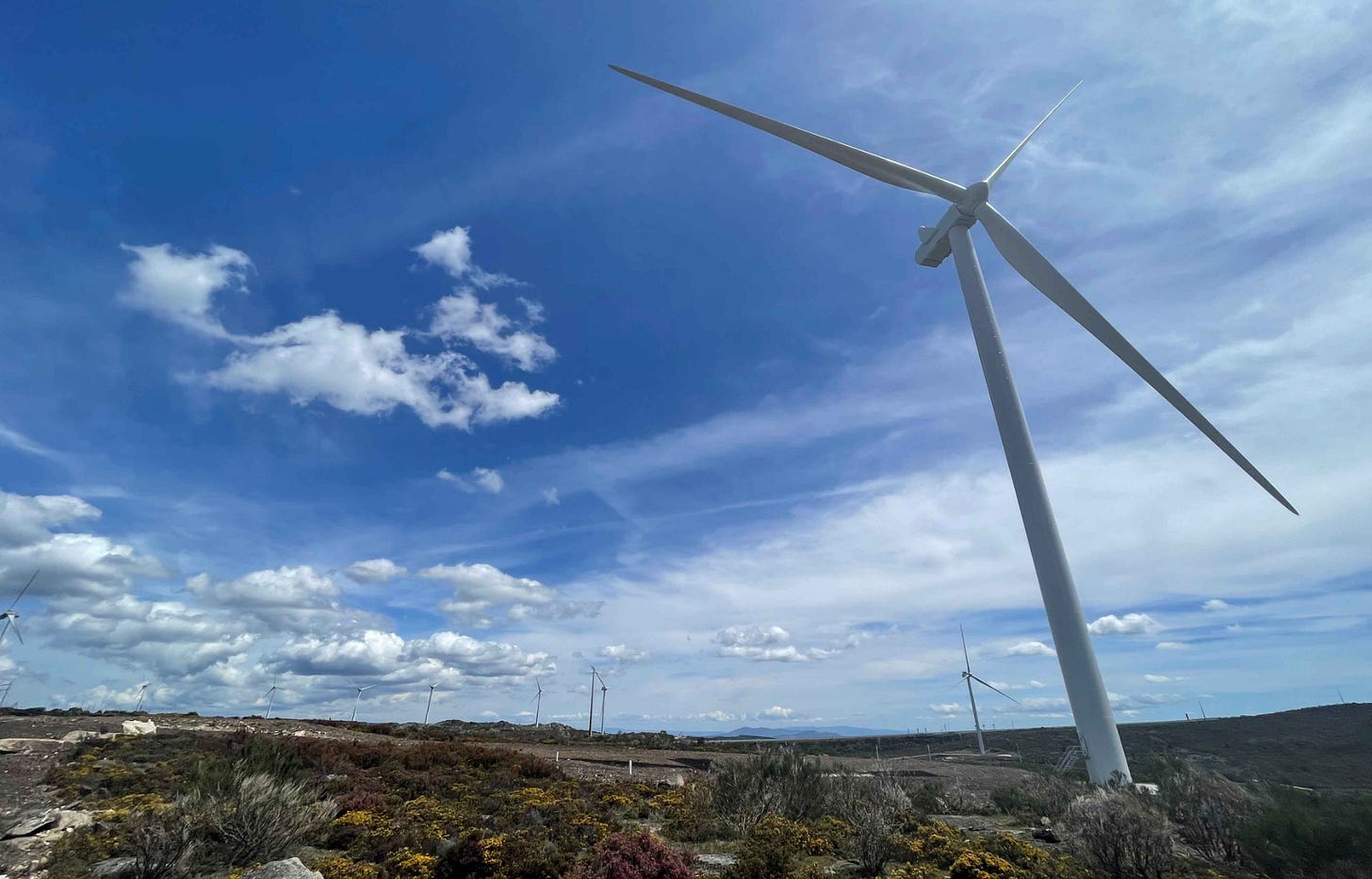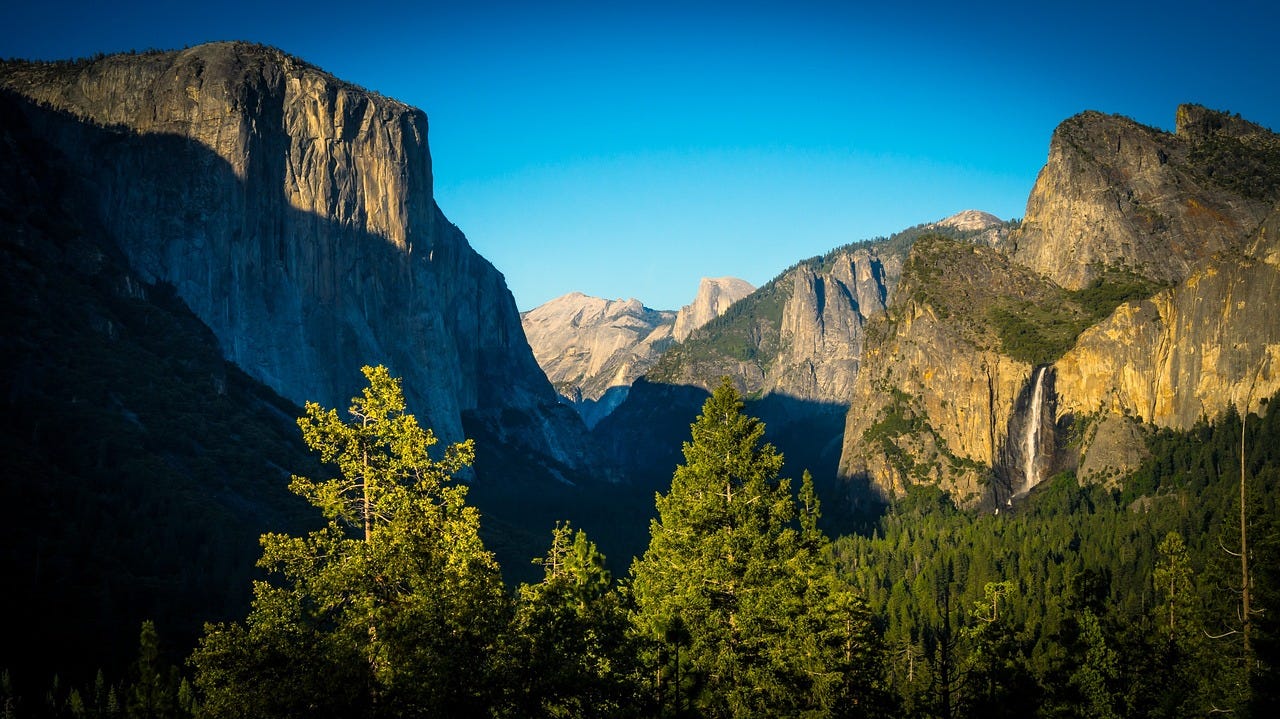Politics aside, clean energy jobs are here to stay
Welcome to Callaway Climate Insights. Enjoy, please share, and have a great Labor Day weekend.
Today’s edition of Callaway Climate Insights is free for all our readers. We really want to bring you the best and latest in climate finance from around the world. But we need your support. Please subscribe.
Get a job!: The U.S. is expected to gain over 5 million net new jobs by midcentury due to the clean energy transition. Researchers at Princeton have modeled net job creation by state. See more from Visual Capitalist.
The battle over the transition to clean energy might be a political hot potato in November’s presidential election, but one thing neither side can dispute is the growth of clean energy jobs in the past several years.
Despite pressure on ESG stocks and the culture wars, jobs tied to clean energy in the U.S. leaped to a majority — 56% — of the 250,000 energy jobs created last year, according to the Department of Energy. In total, clean energy jobs are about 8.5 million, or 5% of all jobs in the U.S., the government said.
The DOE report comes as Britain’s new Labour government begins hiring this week for managers to help launch its new Great British Energy Company in Scotland, to power the UK’s transition.
The growth means that the oft-maligned clean energy sector in both countries is finally hitting a critical mass sufficient enough to make political tinkering a dangerous economic threat.
While former President Donald Trump enjoys railing against climate change and promoting oil in his “drill, baby, drill” speeches, his advisors know that many of those jobs are in red states he needs to win the election.
Sometimes the best answer to political posturing is to simply look at the numbers.
Don’t forget to contact me directly if you have suggestions or ideas at dcallaway@callawayclimateinsights.com.
Follow us . . . .
Twitter | LinkedIn | Facebook | Instagram
Renewable Energy in Portugal: An undervalued success story
. . . . When we think of renewable success stories in Europe, mostly Scandinavian countries come to mind. But Portugal is right there with Sweden and Denmark, writes Nick Godt from Lisbon. Since ditching coal production three years ago, the country has increasingly relied on its powerful mix of renewable energy, from hydropower to wind energy from the Atlantic Ocean, to plentiful solar (and yes, some Spanish fossil fuel imports). But like most renewable energy stocks, Portuguese energy companies have struggled to convince investors of their transition. That may be about to change.
Thursday’s subscriber insights

Canada’s carbon shame as wildfires light up its pollution rankings
. . . . Canada, with its vast forests and unspoiled natural beauty, joined a renegade list of the largest global polluters last year after its devastating wildfires pushed more dangerous carbon into the atmosphere as several of the top 10 largest emitters, including Germany and Russia.
Only China, the U.S. and India exceeded Canada’s output of 647 megatons of carbon, according to Nature magazine, though Canadian authorities refused to count it since it wasn’t — supposedly — self-inflicted.
Carbon Action Tracker, which this week announced several new ratings for various countries, rated Canada efforts to mitigate global warming as insufficient, citing the wildfires and what it called a “glacial pace” of policy implementations. The country just this week slapped a 100% tariff on Chinese electric vehicles, slowing down the pace of change to an electric fleet, if not killing it in its infancy.
Nature also noted that the wildfires played havoc with the global carbon offset markets, as some of the forests that burned had been accounted for in carbon offset plans reaching out several decades. This threat to the credibility of the carbon markets is something we’ve been writing about in California and the Pacific Northwest for some time.
Whether authorities count the carbon toward Canada’s net zero goals or not, the environment plays hardball, and everything counts in its book. The challenges of wildfires are just another obstacle climate change is throwing up to our nascent efforts to get global warming under control. . . .
Summer doldrums hit startups as markets await rate cut
. . . . An eerie silence hung over the startup markets in June and July as summertime and a long wait for a September cut in interest rates kept fundraising to a minimum, according to the latest monthly numbers from startup researcher KingsCrowd.
Only five startups recorded new raises in July, with the average raise being about $27 million and the average number of crowd investors about 75. Those numbers matched poor numbers in June, contributing to a malaise in the VC industry ahead of any decisive turn in the rate cycle.
The silver lining is that all five startups were tied to the environment and the energy industry appeared to be the only industry with any significant gains. See data from KingsCrowd, here: Amount invested per industry in July 2024.
Startups need cheaper money to keep going and the era of rising interest rates has been a dark winter. Perhaps September will be the beginning of something.
Editor’s picks: Let the salmon just keep swimming; plus, a new chocolate process

Salmon will soon be able to swim freely along the Klamath River for the first time in more than 100 years. A report from The Associated Press details how the largest dam removal project in U.S. history will allow the river to flow in its historic channels along the Oregon-California border, and give the salmon access to “key swaths of habitat just in time for the fall Chinook, or king salmon, spawning season.” Leaf Hillman, ceremonial leader of the Karuk Tribe, which has spent 25 years fighting for the removal of the Klamath dams, told the AP, “Seeing the river being restored to its original channel and that dam gone, it’s a good omen for our future.” The report notes the dam removal is part of a national effort to let rivers return to their natural flow and to restore ecosystems for fish and other wildlife.
More chocolate is better, right?
Food scientists in Switzerland have come up with a way to make chocolate using the entire cocoa fruit rather than just the beans — and without using sugar, the BBC reports. The chocolate, developed at the Federal Institute of Technology in Zurich, includes the cocoa fruit pulp, the juice, and the husk. Traditional chocolate processing uses only the beans. The rest of the cocoa fruit is left to rot. According to the report, the new chocolate is the result of a partnership with KOA, a Swiss start-up working in sustainable cocoa growing. The company believes using the entire cocoa fruit could solve many of the cocoa industry’s problems, including the soaring price of cocoa beans and endemic poverty among cocoa farmers.
Latest findings: New research, studies and projects

Climate’s threat to public debt
As the world faces rising temperatures, extreme weather events and environmental disruption, the imperative to mitigate climate change has never been more pressing. Yet the pursuit of effective mitigation could threaten the sustainability of public debt due to the potentially huge fiscal costs of the associated policies, say the authors of research titled “The Green Transition and Public Finances.” From the abstract: “… when the government relies too heavily on expenditure-based measures, it threatens the sustainability of public debt, by increasing the probability of sovereign default, leading to higher interest rates on government bonds. This higher public default risk has potentially significant repercussions on investment financing conditions for the private sector, and increases the cost of the transition to a net-zero economy. On the other hand, carbon pricing policies make the transition more viable for public finances, at the expenses of similarly high economic costs, while remaining effective in reducing greenhouse gas emissions.” Authors: Caterina Seghini, Swiss Finance Institute, University of Geneva, Geneva Finance Research Institute; and Stéphane Dées, Banque de France.
More of the latest research:
Human Rights for Disaster Risk Reduction Including Climate Change Adaptation
Does Decarbonization Policy Reduce Recycling? Examining Conflicting Environmental Targets
Words to live by . . . .
“Summer’s lease hath all too short a date.” — William Shakespeare.




